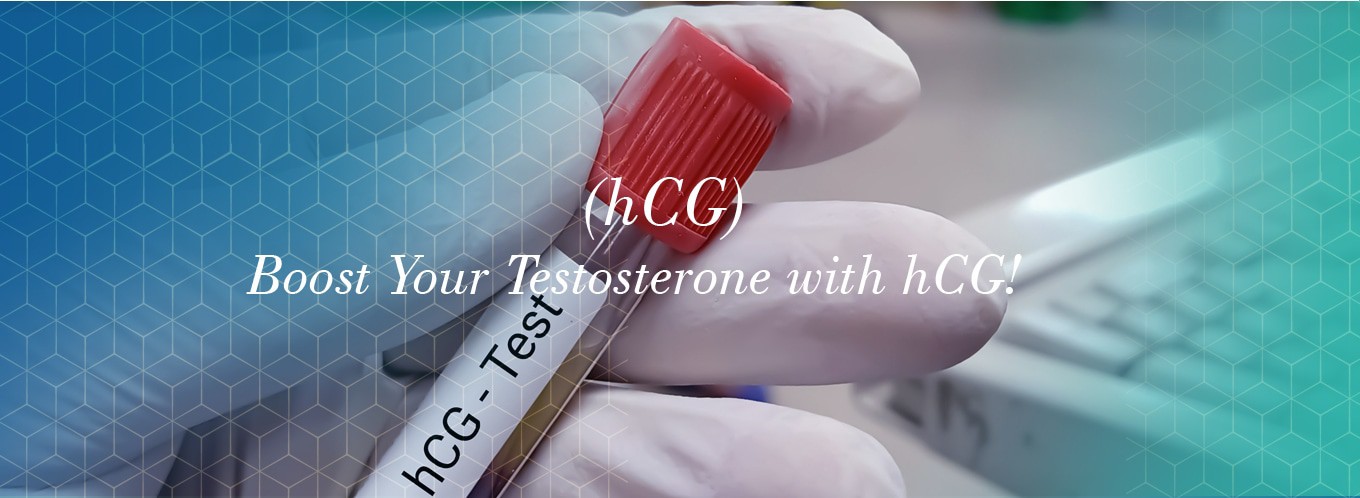hCG Instead of Testosterone? A Look at the Value of hCG for Men


When most people hear about hCG, they think of the hormone related to pregnancy. While hCG is definitely important for women during pregnancy, this particular hormone may be just as valuable for men, potentially even where fertility is concerned. Men who are dealing with low testosterone and some effects of "low T" may be especially interested to know just how valuable hCG can be. Below is a closer look at hCG, why it may be an option for men with low testosterone, and more.
Human chorionic gonadotropin (hCG) is created primarily by cells known as syncytiotrophoblastic cells, which are found in the placenta during gestation. However, hCG is also produced in minimal amounts by the liver, colon, and pituitary gland. Therefore, both women and men have measurable amounts of hCG in their bodily systems all the time.
The hormone hCG is often recognized as a "pregnancy hormone" because the female body produces a profound amount of hCG in the early stages of pregnancy. When a female takes a pregnancy test, the test is actually measuring for levels of hCG to determine the result. Beyond the important role that hCG plays in pregnancy, however, this particular chemical may be especially important for men.
Both hCG and testosterone are produced by men. However, without hCG, the male body may not produce as much testosterone, and possibly not enough testosterone to support fertility. To understand why hCG is so important, it is good to understand how sex hormones are produced within the male body. The process goes something as follows:
-
The hypothalamus in the brain produces GnRH (Gonadotropin-releasing hormone)
-
GnRH stimulates the pituitary gland to produce FSH (folliculin-stimulating hormone) and LH (luteinizing hormone)
-
LH signals the testicles to create testosterone and sperm
When the male body needs more testosterone than what is available, the pituitary gland tries to produce more LH. However, LH needs one important thing: hCG. This particular hormone is actually an analog of LH, and without enough hCG, the body may not produce enough testosterone or LH, which affects sperm quality.
With an understanding of the role hCG plays in testosterone production, it is easy to see just why this hormone is important for men who have issues with low T. HCG may be used alone to support testosterone and sperm production, but it may also be used as a conjunctive therapy option for men who are already on testosterone. Below is a look at some of what we know about the modern ways hCG therapy is used for men.
Increasing Serum Testosterone Using hCG in Men
In some cases, hCG therapy may be an option to increase serum testosterone levels in men. This is of specific interest when a man has low T and is concerned about fertility, as testosterone replacement therapy (TRT) may actually detrimentally affect fertility.
Preserving Testicular Volume with Exogenous Testosterone Replacement
TRT has been linked with reduced testicular volume or testicular atrophy, especially during long-term treatment. This occurs because TRT may prevent the body from making its own GnRH and LH, so the testicles stop producing testosterone on their own, and this leads to smaller testicular volume.
Low doses of hCG in conjunction with TRT may maintain testicular-produced testosterone and deter issues with testicular shrinkage. In a study published in the Journal of Clinical Endocrinology and Metabolism, even a low dose of hCG with TRT helped to keep intratesticular testosterone levels at a normal range. This would also mean testicular volume would be better supported.
Targeting Infertility and Sperm Count
HCG may also be used to support fertility and sperm count, even though research into the idea is in earlier stages. The hormone is often prescribed to men who are on TRT in order to prevent problems with fertility.
Clomiphene (Clomid) is a commonly prescribed medication for men who are dealing with infertility and is often prescribed for men who are on TRT concerned about fertility. Clomiphene works by telling the testicles to produce more testosterone, which may have a benefit on sperm production. However, this medication has also been shown to have a negative effect on sperm. Clomiphene may be more effective when combined with hCG for treating TRT-related infertility.
Treating Micropenis
Micropenis is a condition that can come along with IHH, but hCG may target this issue as well. In studies published in 2011, men with IHH and micropenis experienced substantial penile growth. After 24 weeks of treatment with injected hCG, the men had over two centimeters of penile growth on average. Likewise, testicular volume and testosterone levels were also enhanced.
The recommended hCG dosage and method of delivery can vary significantly depending on the condition being targeted. For example, the hCG dosage to reverse testicular atrophy may differ from the dosage used to counteract TRT side effects. Using the aforementioned studies as a reference, some of the most common hCG dosage recommendations look something like what follows:
-
Testosterone production/Testicular volume/Atrophy/Sperm count/Micropenis - hCG 1,500-2000IU intramuscular injections 3x per week for 8 weeks
-
Increasing/preserving intratesticular testosterone and volume using HCG (with TRT) - Either 2000-5000IU hCG weekly or 125, 250, or 500 units per day
-
A combined method for increasing/preserving intratesticular testosterone and volume using HCG (with TRT) - Testosterone intramuscular injections once per week and 250 units of hCG on days 5 and 6
How much hCG on TRT do I need?
The exact amount of hCG needed while taking TRT can vary depending on the situation and the symptoms being targeted. Men who are on higher doses of TRT may need higher doses of hCG, even though the amount of hCG needed for efficacy to target TRT side effects may not be a great amount.
How long does it take hCG to increase testicle size?
Individual results can vary when it comes to how quickly hCG may increase testicle size. In some of the aforementioned studies, growth was measured after eight weeks of hCG treatment and remained at 24 weeks after treatment concluded.
Can hCG restore testosterone levels?
Possibly, even though more research does need to be done to offer a definitive answer. In one study published by the International Brazilian Journal of Urology, mean testosterone levels were improved by nearly 50 percent after eight months of treatment with hCG. Half of the men in the study also reported that they experienced improvements in low-testosterone symptoms, such as low libido, lack of energy, and erectile dysfunction.
As you can see, hCG can be a very important treatment tool for men who are dealing with different symptoms due to either low T or TRT treatment. Even though hCG can be in short supply because of the demand, we strive to keep these valuable treatments available at Harbor Compounding Pharmacy at an affordable price. Looking to learn more about hCG? Reach out to us to talk to one of our pharmacists for more information.


